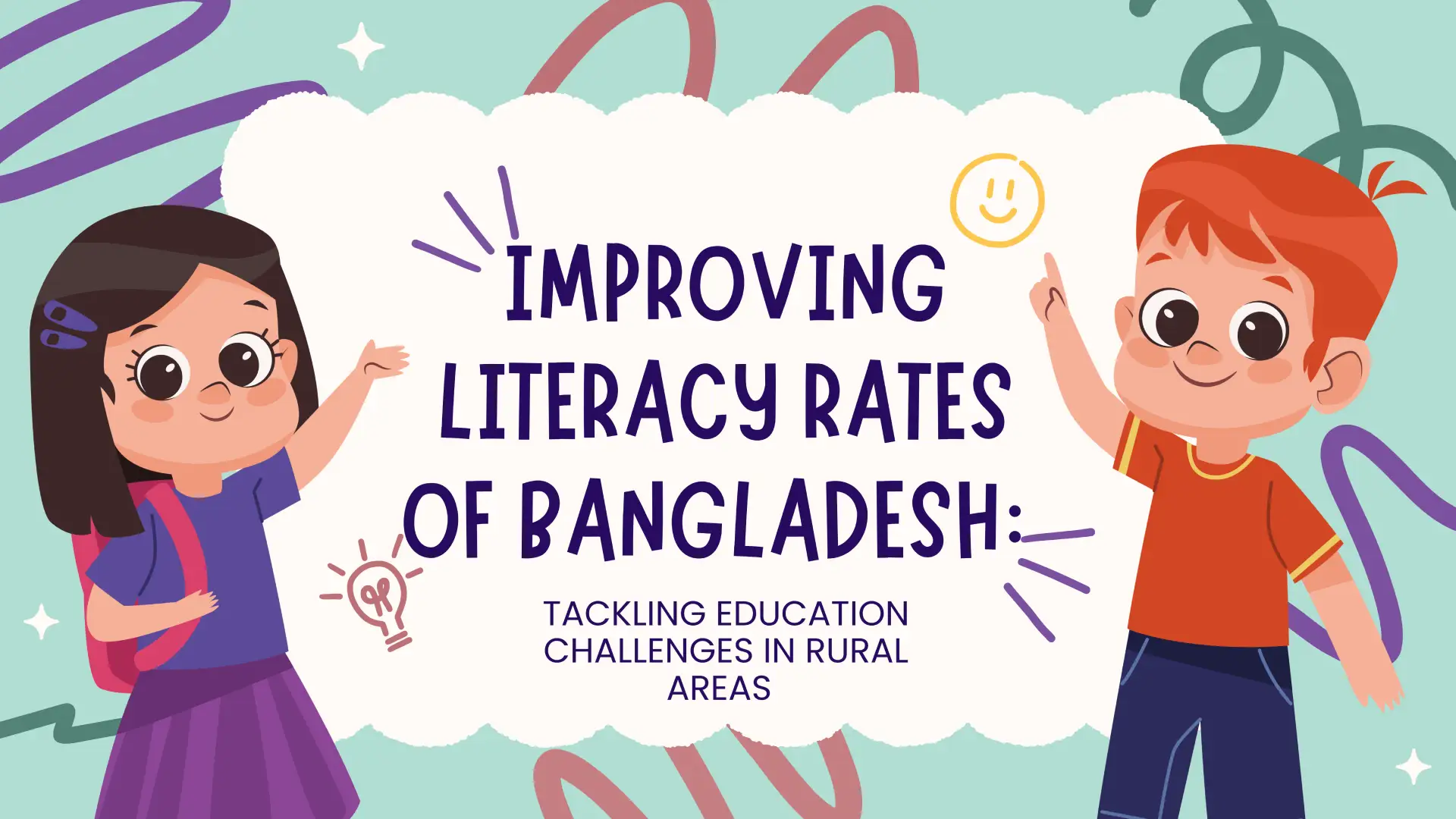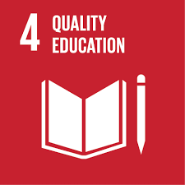

While Bangladesh has made significant progress in improving its education system, the literacy rate of Bangladesh continues to face challenges, particularly in rural areas. In these regions, children often struggle to access quality education due to a lack of schools, insufficient teachers, and poor infrastructure. These barriers prevent many children from reaching their full potential and contribute to the lower literacy rates in these areas.
These issues have resulted in a literacy rate of approximately 65% in rural Bangladesh, compared to 85% in urban areas, highlighting the urgent need for action (Source: Bangladesh Bureau of Statistics, 2021).
The United Nations’ Sustainable Development Goal 4(SDG 4) aims to ensure quality education and promote lifelong learning for all. Bangladesh is committed to achieving universal education and improving the literacy rate of Bangladesh by 2030. This includes efforts to improve education in rural areas, where many children face significant barriers to learning.


At the Dishari Janakallan Foundation, we are committed to addressing the challenges that rural children face in accessing education. One of our key initiatives is the Free Breakfast + Education = Brighter Futures program , which provides children with a nutritious breakfast followed by educational activities every morning.
Led by our dedicated Executive Member, Mr. Nurul A. Zahangir, this program ensures that children start their day with a healthy meal, which helps them focus better in class. We believe that by meeting basic nutritional needs alongside education, we can help children break the cycle of poverty and illiteracy, offering them a brighter future.
Through this program, we aim to directly contribute to improving the literacy rate of Bangladesh by ensuring that children in rural areas have access to both food and education. By providing children with the tools they need to succeed, we are helping to lay the foundation for a more literate and educated future generation.
While the road to improving the literacy rate of Bangladesh is challenging, it is not impossible. With the support of local communities, the government, and organizations like ours, we can make a meaningful difference in the lives of rural children. The Dishari Janakallan Foundation invites everyone to join us in this important cause. Together, we can create a future where all children, regardless of where they live, have access to quality education and the opportunity to thrive.